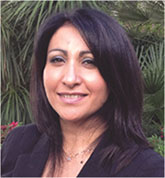Upcoming Webinar by Dr. Stefania Sardellitti: "Joint Optimization of Radio and Computational Resources in Mobile Edge Computing"

Upcoming Webinar - 28 October 2020
Webinar Topic: "Joint Optimization of Radio and Computational Resources
in Mobile Edge Computing"
Presenter: Dr. Stefania Sardellitti
Based on the IEEE Xplore® article
Joint Optimization of Radio and Computational Resources for Multicell Mobile-Edge Computing, June 2015
| Presenter: Date: Time: Duration: Register: Download: |
Dr. Stefania Sardellitti 28 October 2020 11:00 AM EDT (New York time) Approximately 1 hour Attendee Registration The original article is open access and freely available to download, on IEEE Xplore® |

The IEEE Signal Processing Society would like to express our concern and support for the members of our global community and all affected by the current COVID-19 pandemic. We appreciate your continued patience and support as we work together to navigate these unforeseen and uncertain circumstances. We hope that you, your families, and your communities are safe!
About this topic:
In recent years, we have seen the emergence of new compute-intensive and delay-critical mobile applications, such as virtual/augmented reality, online gaming, ultra-high-definition video streaming and autonomous driving. Multi-access edge computing (MEC) has become a key technology in 5G networks to shift computational tasks from resource-limited mobile devices to nearby servers placed at the edge of the network. The resulting computation offloading mechanism enables peripheral mobile devices to save battery energy and makes simple devices, as in the Internet-of-Things scenario, able to run sophisticated applications.
In this webinar, we will see how computation offloading induces a strict interplay between communication and computational resources, which motivates the formulation of the computation offloading problem as a joint optimization of the radio and computational resources. We will start with a single cell scenario, where a single MEC host allocates computation and communication resources jointly, by minimizing the energy consumption at the mobile sides, while guaranteeing a service delay including both communication and computation delays. Then, we will move to a multicell scenario, where the MEC host serves users from different cells.
In this latter case, the joint optimization has to cope with intercell interference. The resulting optimization problem becomes nonconvex and presents a number of challenges. To solve the nonconvex problem, a novel iterative algorithm was proposed based on a successive convex approximation technique that can be implemented in a centralized or distributed form. The framework is then applied to a more general context, composed of multiple cells and multiple edge hosts concurring to serve multiple users.
Finally, there will be a brief review of recent developments of computation offloading strategies to the case where computation and communication resources are allocated dynamically, without prior knowledge on requests' arrival rates and radio channel statistics.
About the presenter:

Stefania Sardellitti received the M.Sc. degree in Electronic Engineering from the Sapienza University of Rome, Italy, in 1998 and the Ph.D. degree in Electrical and Information Engineering from the University of Cassino, Italy, in 2005.
From 2007 to 2018 she was a research fellow in the Department of Information Engineering, Electronics and Telecommunications, University of Rome, Sapienza, Italy. From 2005 to 2019 she was an appointed professor of digital communications at the University of Cassino, Italy. Currently, she is assistant professor with the Department of Information Engineering, Electronics and Telecommunications, University of Rome, Sapienza, Italy.
Her research was supported by the European projects WINSOC, on wireless sensor networks, FREEDOM, on femtocell networks, TROPIC, on computing, storage and communication over cooperative femtocells and by the H2020 Europe/Japan project 5G-MiEdge on millimeter-wave edge cloud. Her primary research interests are in the area of signal processing theory, graph signal processing, mobile edge computing for 5G, wireless communications and distributed optimization.
Dr. Stefania Sardellitti received the 2014 IEEE Best Paper Award from the IEEE Signal Processing Society. She serves as an associate editor for the EURASIP Journal on Advances in Signal Processing and is a member of the IEEE Signal Processing Society.

